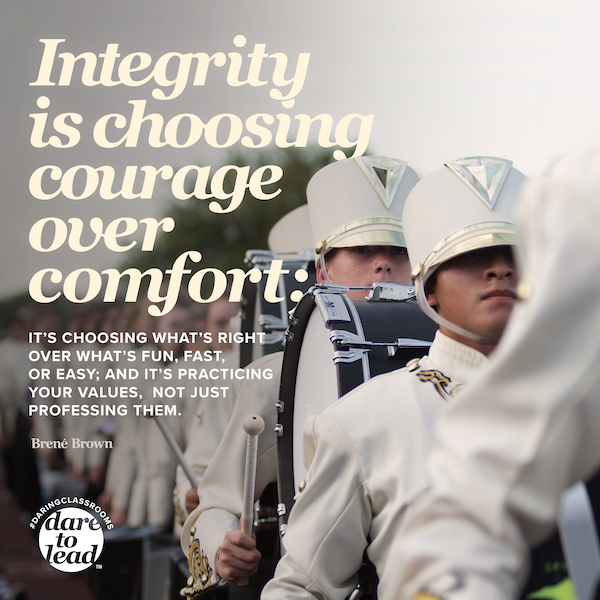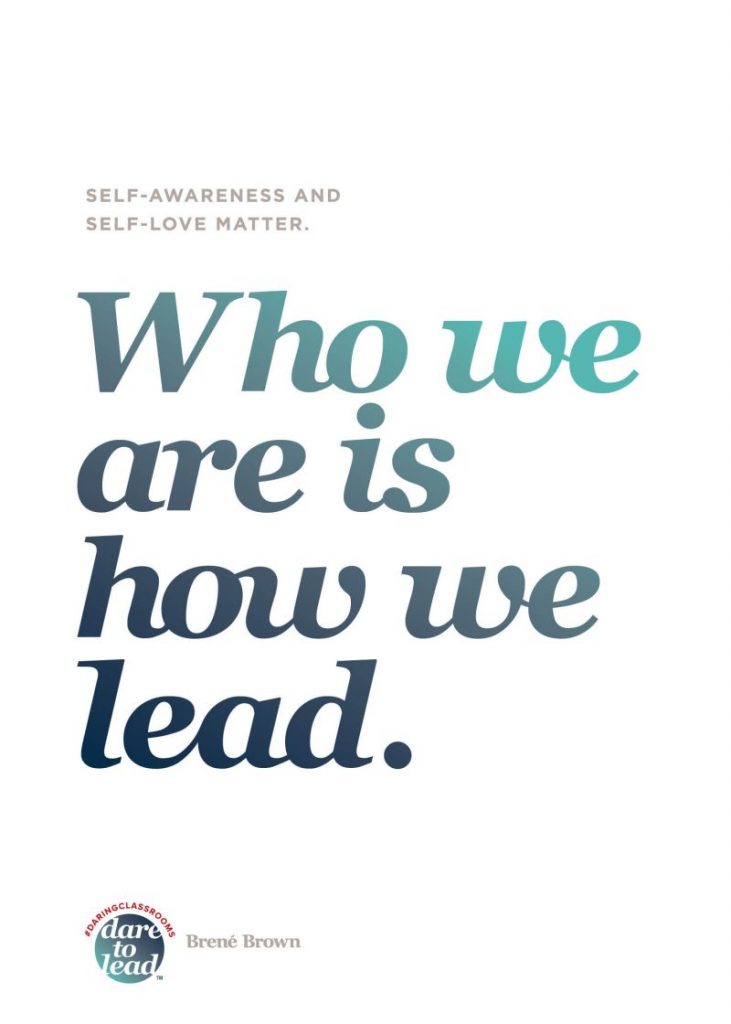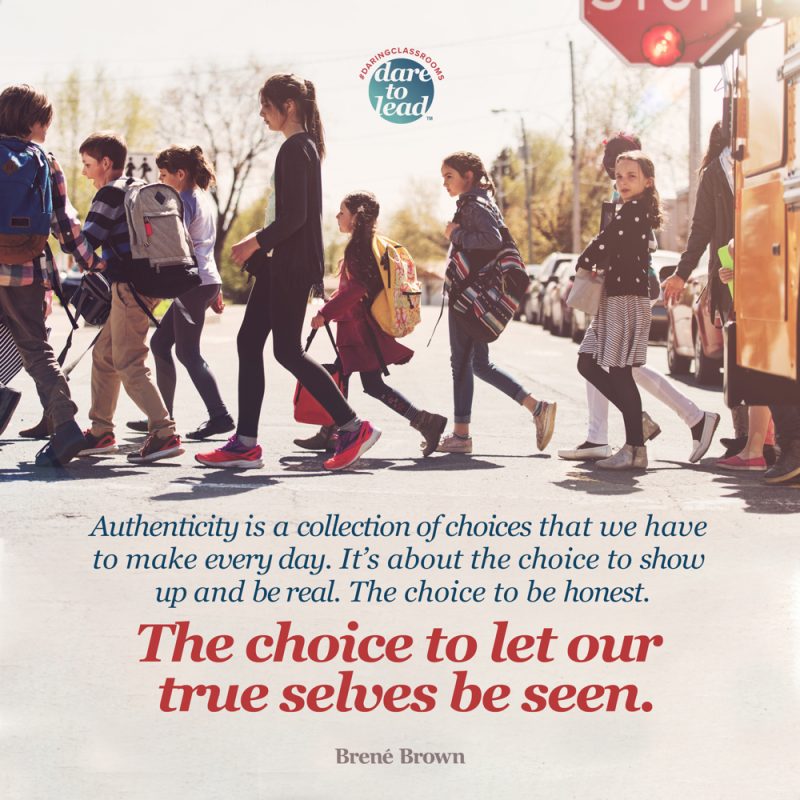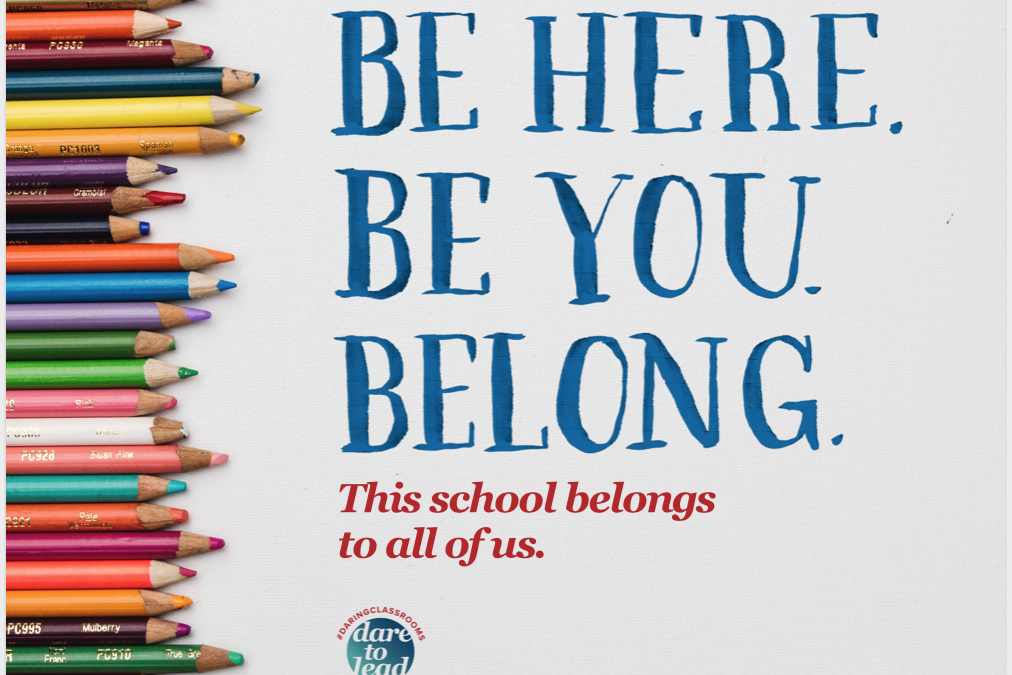Brené Brown’s most recent book, ‘Dare to Lead’ follows her phenomenal TED Talk success. Her talk on the power of vulnerability is one of the most-watched TED Talks and if you are a Netflix subscriber, her documentary is also worth viewing.
In a school setting her work brings together a number of threads. It is about developing an awareness of who you are and what you stand for, recognising and responding to your emotions and having the courage to have conversations that matter. Brené Brown has recently released work and resources to create daring classrooms and I am excited about the possibilities this brings.
Brown believes that courage is the number one skill that leaders will need to succeed in the future and that vulnerability is the most accurate measure of our courage. Coating ourselves in protective armour is our barrier in being vulnerable. Being vulnerable and courageous leads to;
- trust
- empathy
- innovation
- creativity
- accountability
- inclusivity and equity
- the ability to have conversations that matter.
Brown talks a lot about shame, from her grounded research theory, believes an insight into shame is pivotal to understanding and avoiding vulnerability. Shame is visible in workplaces and schools when we;
- have the meeting or discussion after the meeting
- compare
- have favourites
- gossip rather than going to the person concerned
- weaponize
- have power over
- use self-deprecating humour.
A key to overcoming shame and encouraging vulnerability is empathy. Empathy is connecting to the emotions underpinning experience and connecting on the other person’s terms. It needs us to be mindful and very present in the moment in order to recognise and communicate emotion. We need to stay out of judgement and be aware of our potential bias.
Utilising empathy enables us to have courageous, open to learning conversations, or as Brown refers, rumbles. ” A rumble is a discussion, conversation, or meeting defined by a commitment to lean into vulnerability, to stay curious and generous, to stick with the messy middle of problem identification and solving, to take a break and circle back when necessary, to be fearless in owning our parts, and, as psychologist Harriet Lerner teacher, to listen with the same passion with which we want to be heard. More than anything else, when someone says, “Let’s rumble,” it cues us to show up with an open heart and mind so we can serve the work and each other, not our egos.”
Understanding others begins with knowing oneself and identifying what you value and stand for. Knowledge of other’s values helps connection and the ability to see things from a different perspective.
These are important skills as we strive to be caring, curious and capable learners.



Recent Comments